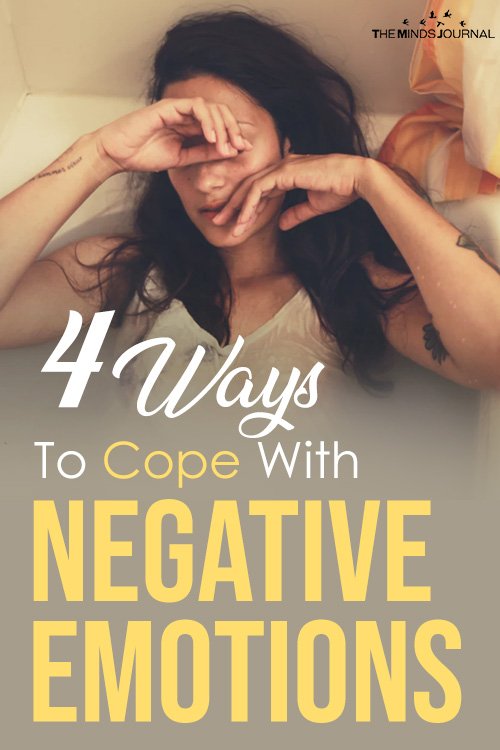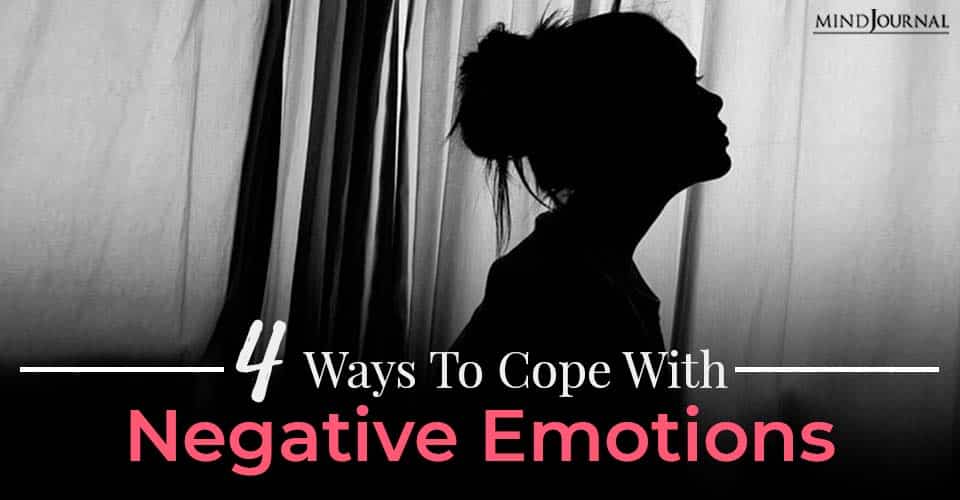Negative emotions are described as any feelings that cause you to feel miserable or sad. There’s nothing worse than feeling a difficult emotion, and its after-effects on your mind and soul.
Coping with negative emotions, dealing with anxiety and depression, and overcoming fear can be difficult.
There are many types of emotions but nothing is worse than feeling difficult and negative emotions.
Sadness, anxiety, anger?
The worst. They’re uncomfortable. They’re exhausting. And they can be scary.
If you’re anything like me, the first impulse you have is to bury those emotions into the ground with a quick fix — Netflix, online shopping, wine, a chocolate-chocolate chip cupcake.
Related: Embracing Your Darkest Emotions Is The Key To Your Psychological Wellbeing
The options are endless.
And why shouldn’t we have options? Who wants to feel bad and emotional?
According to psychologists who have studied basic human emotions, avoiding feeling negativity is actually bad for us. How’s that?
When we avoid a “bad” feeling and opt for a quick fix like Netflix or shopping to feel better, we’re choosing a short-term solution over a long-term benefit.
The short-term solution may make us feel better immediately, but it can make us more averse to painful feelings over time. As a result, we will choose the short-term solution over and over again. But when we choose the short-term solution, we turn our back on certain long-term benefits that we want for our lives.
Goals like getting married, changing jobs, getting a promotion, all involve a certain amount of risk and potential pain. If we are too afraid to experience the possibility of risk or pain, then we stay stuck, and we turn our backs on our goals.
Avoiding negative emotions can wreak havoc on our willingness to expand our lives. Negative emotions are always part of growth and change.
Psychologists believe that the best thing we can do with difficult emotions is to accept them and let them in.
But, I believe that there is a middle road here. I think we can both fully accept our feelings and also let them go to make room for a more comfortable feeling. It’s not possible to fully do away with negative emotions. They will always be part of being alive. And when we feel them, we do well to actually let them in.
But, we can also do what we can to replace those “bad feelings” with a feeling of peace or confidence or gratitude.
The next time you’re in the midst of a negative emotion like anxiety, depression, or fear, here are the steps you need to take to deal with them:
1. Notice the feeling you are having without judgment, any story, or justification.
2. With an open heart allow the feeling. (“I feel ______ right now.”) Even if the feeling seems negative, acknowledge it. It will create some distance from the feeling. Redirect the feeling. Make a full body choice to feel the feeling you want. (For example, if you are feeling nervous or anxious maybe you want confidence, peace, or love). Touch a place on your body (usually, hand over the stomach) that will emphasize this choice. With your hand on your body deliberately choose the new feeling.
3. Ask yourself the next best thing to do (now that you have created the new feeling.)
4. Go peacefully back into your day.
Related: How To Turn Your Painful Emotions Into Superpowers
If you are experiencing difficulty with handling negative emotions, you may benefit from a coaching experience.
Written by Gretchen Hydo Originally appeared in YourTango











Leave a Reply